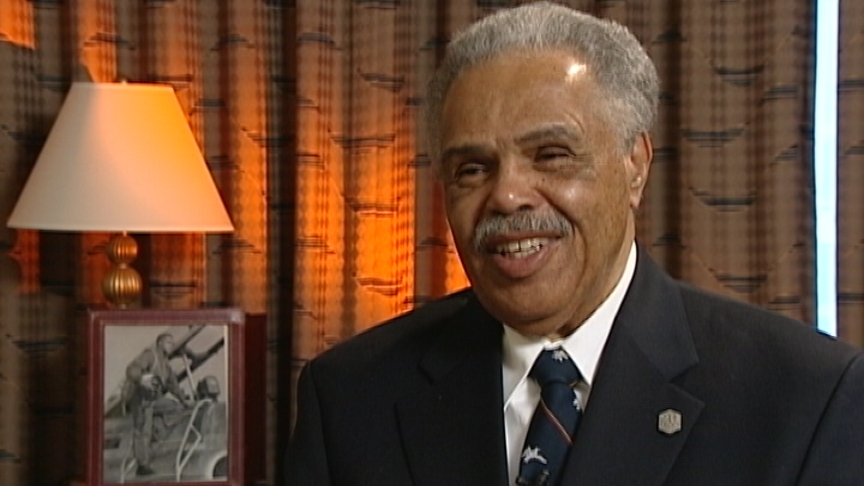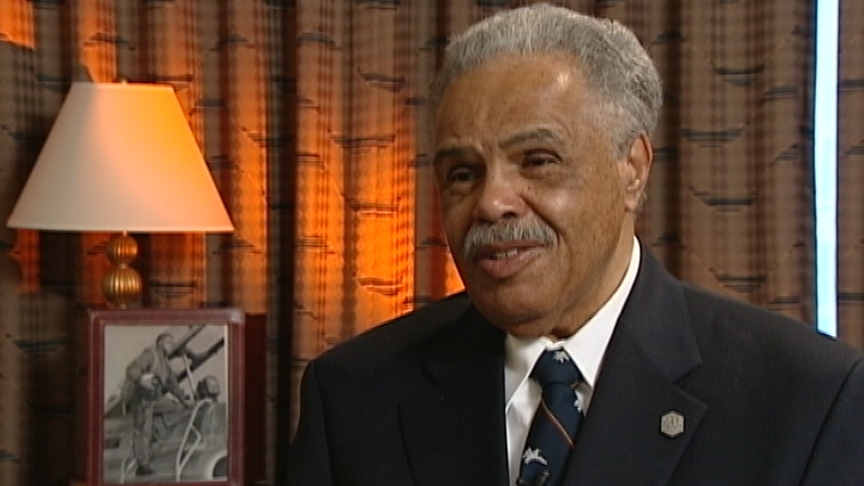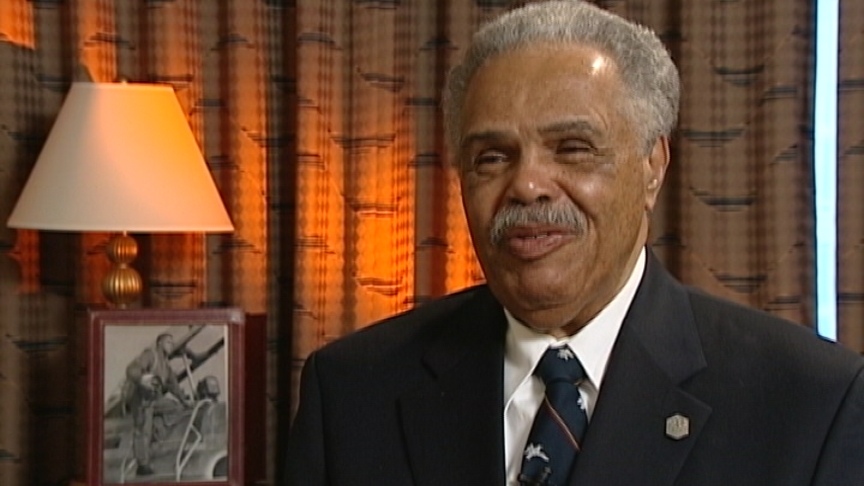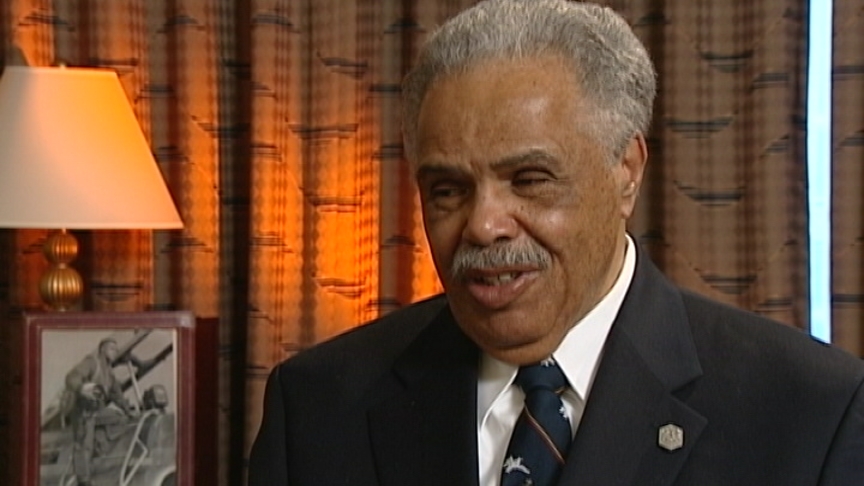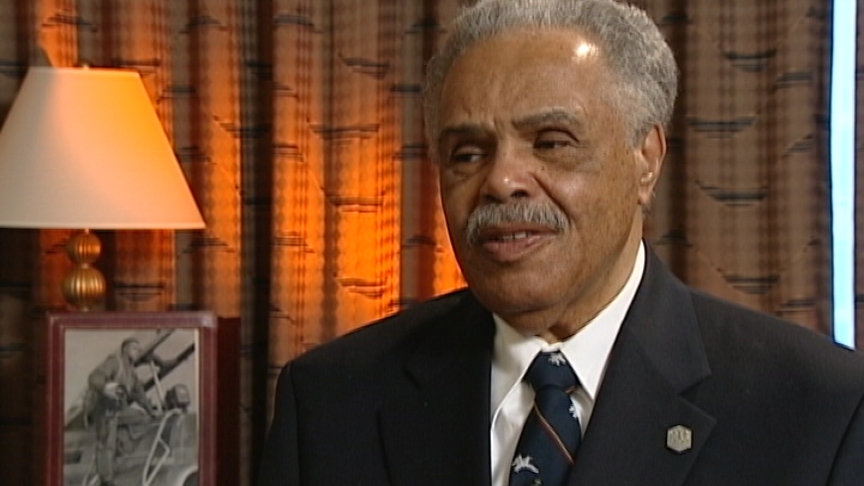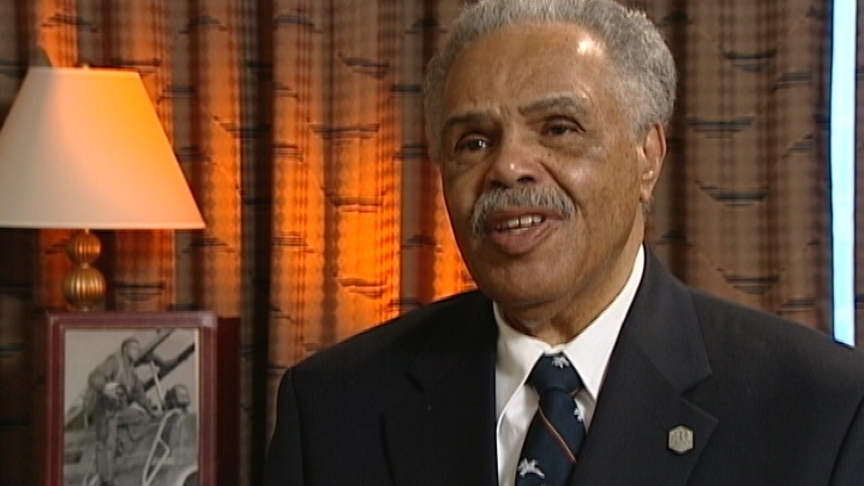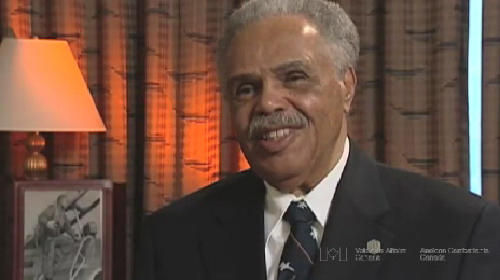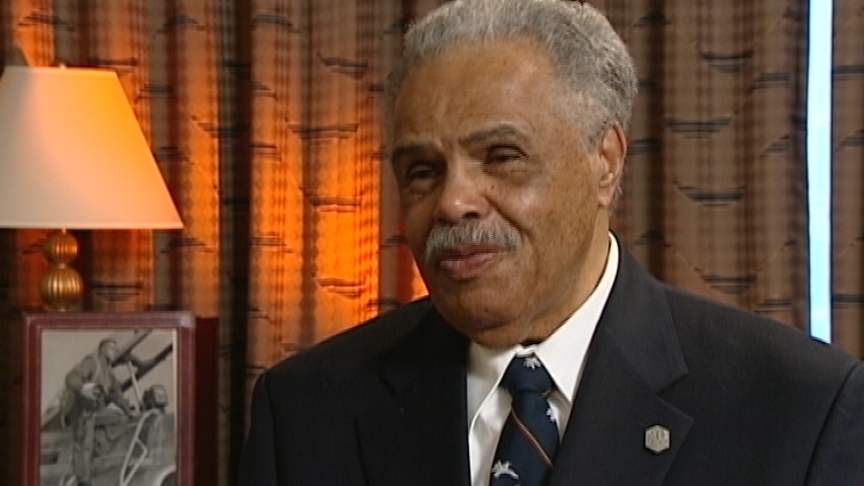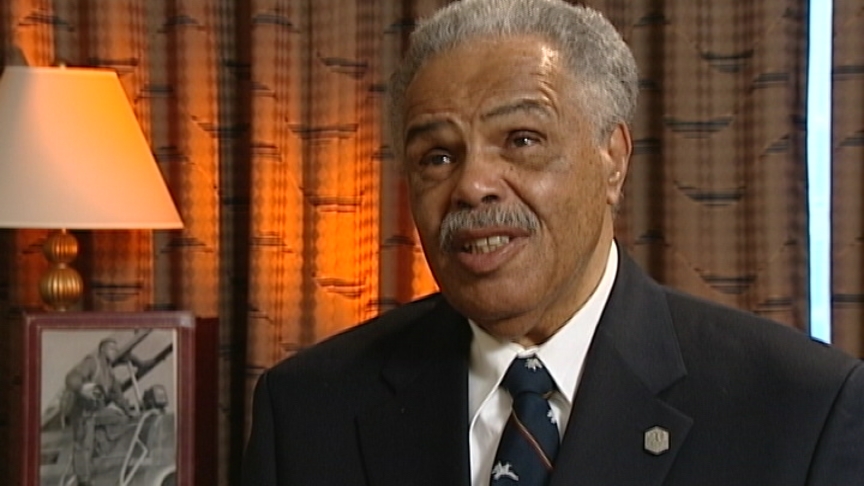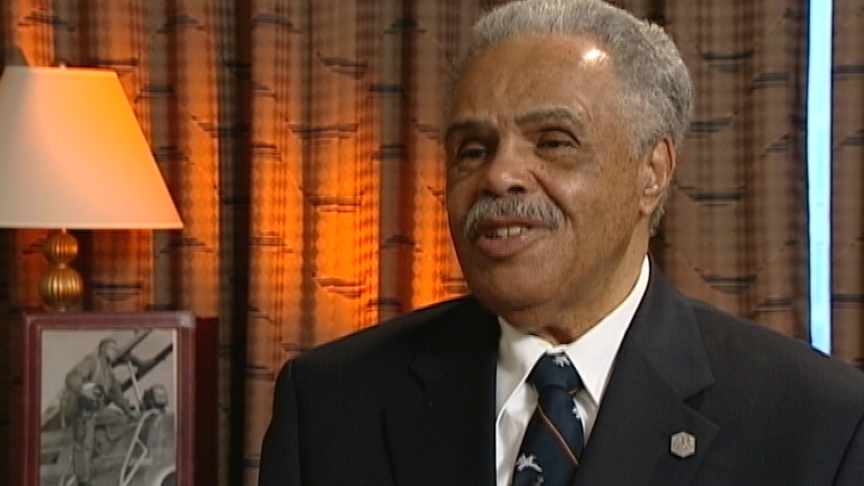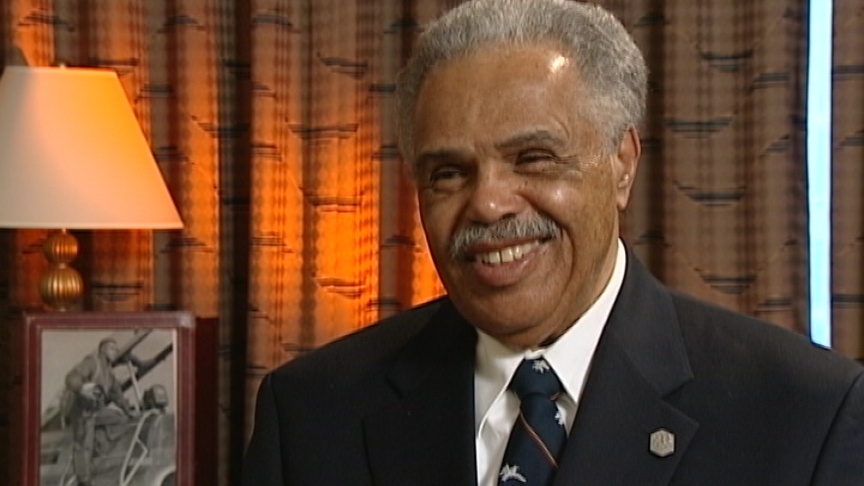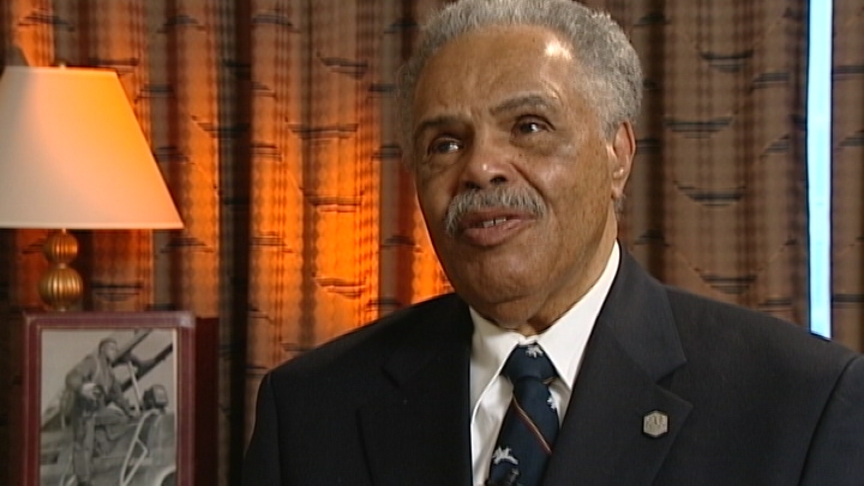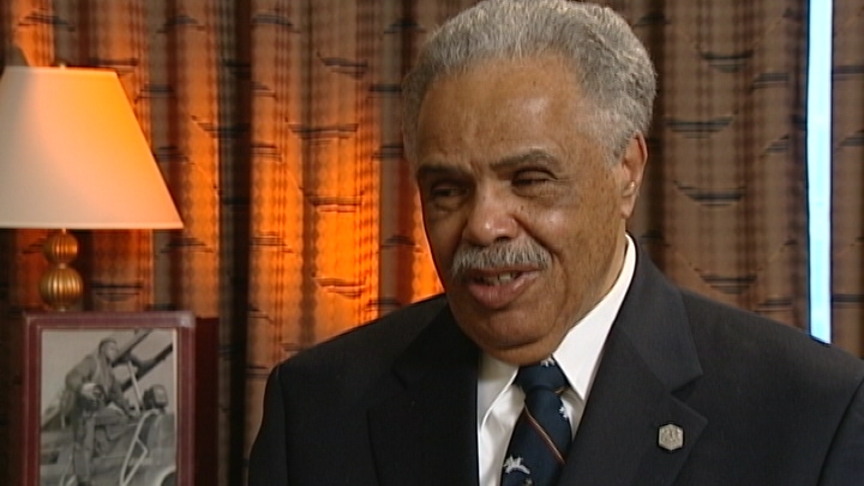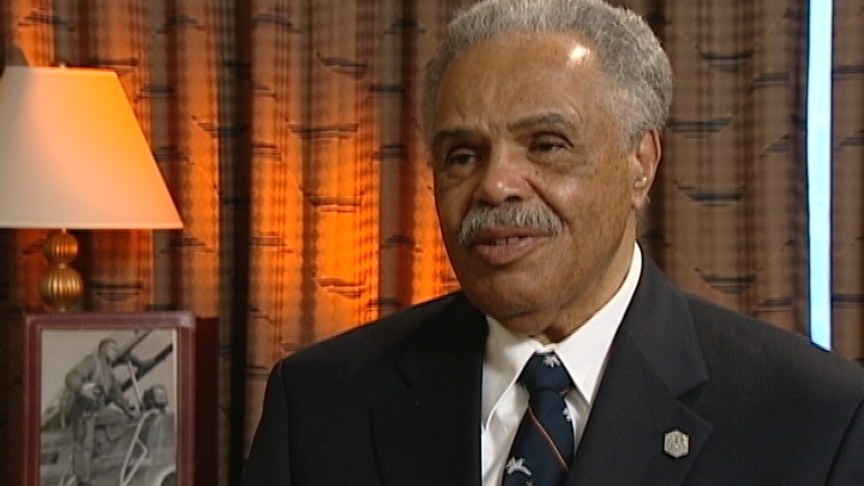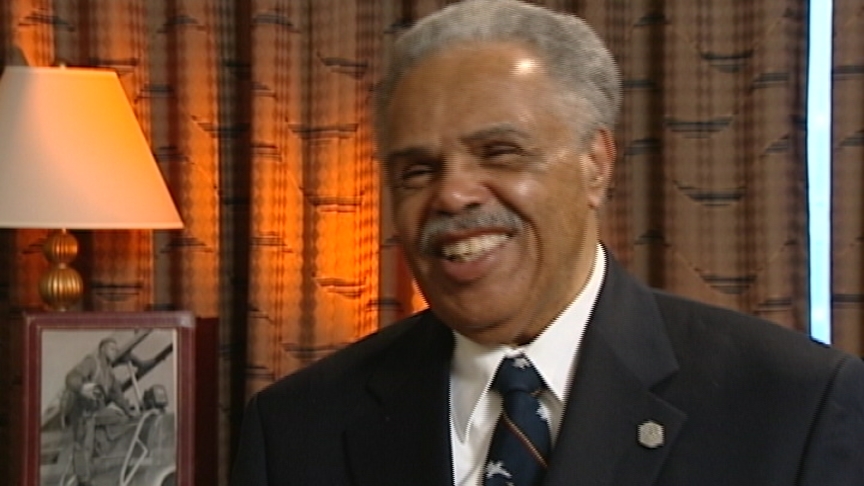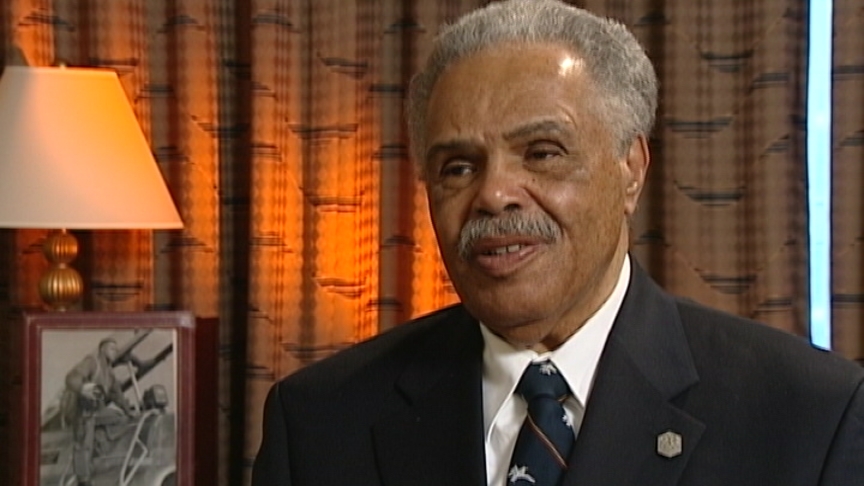I came across a flyer, a recruitment flyer for the
Royal Canadian Air Force.
So I decided I would go down and had no idea
what the process was for becoming a pilot,
you know I thought you just go down
and sign your name up and you become
a pilot and I couldn't foresee there'd be
any problem because I had no difficulty
learning how to drive a car and to me flying
an air plane was going to be very similar to that.
It was a bit of a surprise
and because I worked after coming out of
university, I was on the upper end of the age limit
for pilot training.
They were just starting to use psychological tests
and so on to determine your potential to succeed
in pilot training.
So we went off to Centralia and there we went,
we were there for three weeks
and we went through a battery of various tests
and different exercises to see what your potential was.
We did the various academic exercises
and it was here that my ability in math
certainly stood me in good stead and the sciences
because it was heavily weighted in those areas.
And there were exercises to test your leadership skills
and your team work
and how you could be a leader and a follower because
as we were told at the time,
not only were we being selected to be trained as pilots,
but we would become officers
in the Royal Canadian Air Force. And surprisingly,
the emphasis on becoming an officer
was equal to or not greater than your ability
to become a pilot. And at the end of,
I remember going through all these tests
and you never really understood how well you'd
done or how badly you'd done.
There was no feedback on the day-to-day exercises
but at the end of it all,
all the things were tallied together
and you were brought into a room
and individually you were given your results.
And I remember going into the room
and they asked, they said,
"Well, if you"... the first question which was a surprising
one, it sort of threw me a bit off guard.
They said, "If you are not selected for pilot, would you
accept being a navigator?"
And my answer was, "No." And they said,
"Well, what would you do?"I said,
"Well, I would go back doing engineering work."
And they said, "Well, you won't have to do that
because you've been accepted as a pilot."
I later found out through the people
that worked in the selection unit,
that one of the things they had difficulty filling,
where everybody who went there wanted to be a pilot,
and they had to fill so many billets for aircrew
which included navigators and so on,
and those who said well yes I would take
a navigator position, they said, great,
you've been selected as a navigator.
This was borne out later on
because many of the people who were
originally selected as navigators later be
were cross-trained as pilots
which indicated that it wasn't a matter of aptitude
or skills or anything it was just a matter of what your
reaction was to that first question.



